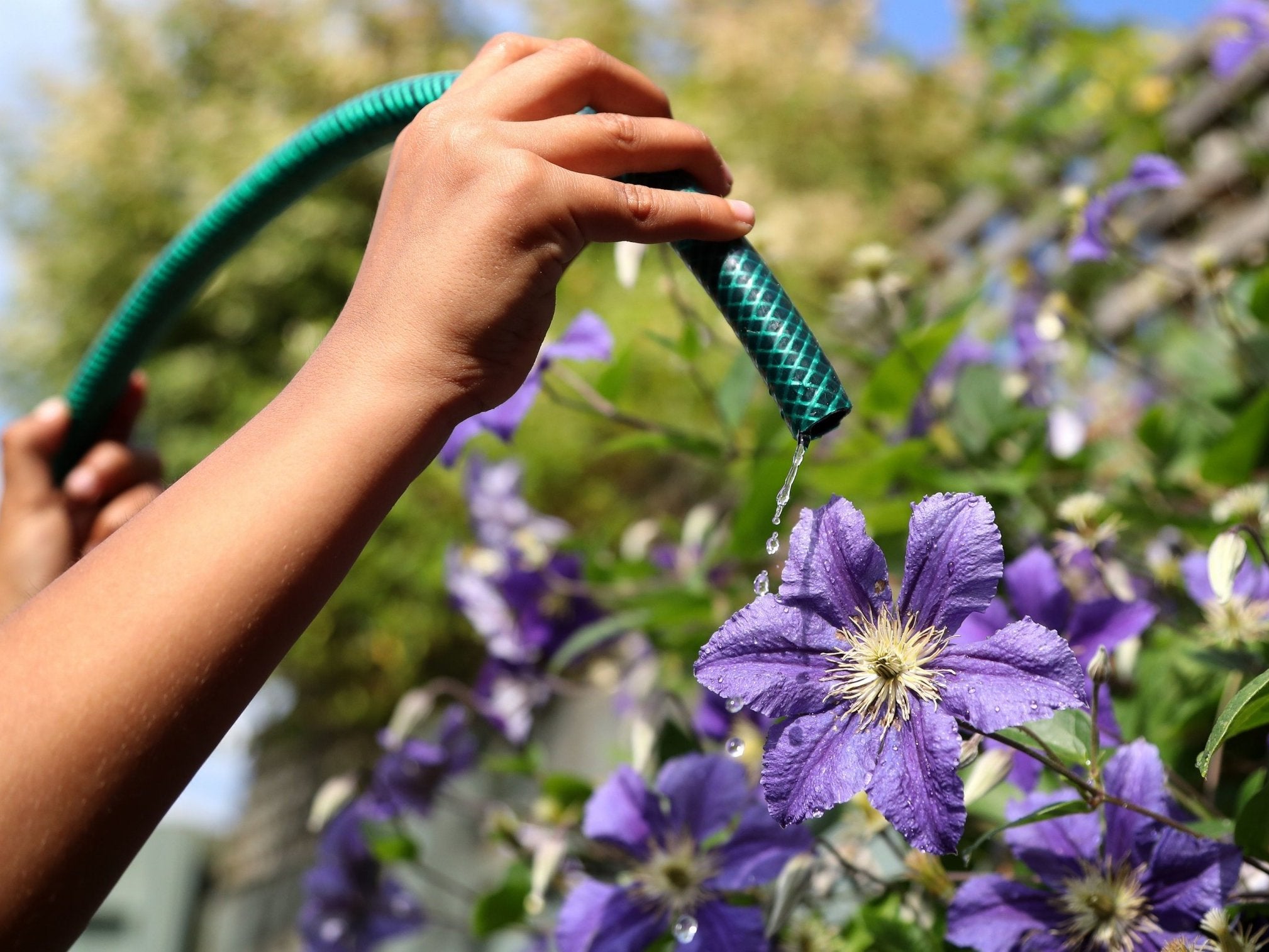Hosepipe ban needed immediately to prevent England's rivers drying up, campaigners warn
Conservation groups say dwindling river levels mean restrictions should be introduced

Rivers in the south east of England are reaching “crisis point” and must be saved with an immediate hosepipe ban, campaigners have warned.
Several groups have written to the Environment Agency’s chief executive, Sir James Bevan, warning that falling water levels are putting wildlife at risk after last summer’s heatwave and a dry winter.
They urged him to force water companies to implement “restrictions and temporary use bans” now rather than wait for further damage to be done.
However, an Environment Agency spokesman said a hosepipe ban would be premature as the problem is not at a “critical level”, adding that plans are in place if the dry weather continues.
The letter, signed by 12 wildlife, conservation and angling groups, claimed all rivers in the south east are “below or severely below” normal levels – pointing to a record low in the Cam in Cambridge and a 55 per cent drop in Hertfordshire’s Beane since 2013.
Wildlife of the world
Show all 19“Surely it makes more sense to prepare the public for potential shortages, in order to encourage demand reductions, rather than to encourage complacency,” the groups wrote.
A hosepipe ban had been planned in the north west of England last summer, but was called off by regional water company United Utilities in August because rainfall had eased demand.
The latest call comes after water companies told Sir James on Tuesday that they might need to “take more water than usual” from rivers and boreholes, but did not foresee imposing their own hosepipe bans this summer.
The Environment Agency spokesman said it expected water utilities to introduce bans before applying for drought permits, which enable them to remove water from the environment.
However, he confirmed that applying for a permit before tapping local resources is an expected protocol, rather than a mandatory requirement.
“There is enough water for all if water resources are managed properly, and we have agreed with water companies to sustain our efforts to ensure people and the environment continue to get the water they need,” he added.
One of the campaign groups, the Angling Trust, warned that trout, dace, chub and roach were most at risk from low water levels, while there were also long-term threats to kingfishers, grebes and other fish-eating birds.
“Without urgent action now to reduce water use, many of our streams will dry up and die,” said the trust's chief policy adviser, Martin Salter.
Other groups also lobbying the government agency include Herts & Middlesex Wildlife Trust, Berkshire, Buckinghamshire and Oxfordshire Wildlife Trust, and the Wild Trout Trust.
Additional reporting by Press Association
Subscribe to Independent Premium to bookmark this article
Want to bookmark your favourite articles and stories to read or reference later? Start your Independent Premium subscription today.

Join our commenting forum
Join thought-provoking conversations, follow other Independent readers and see their replies